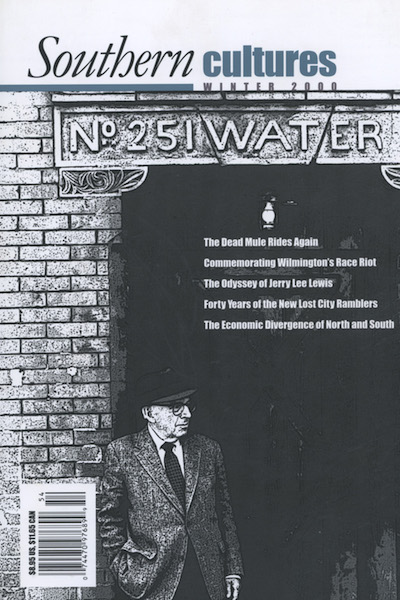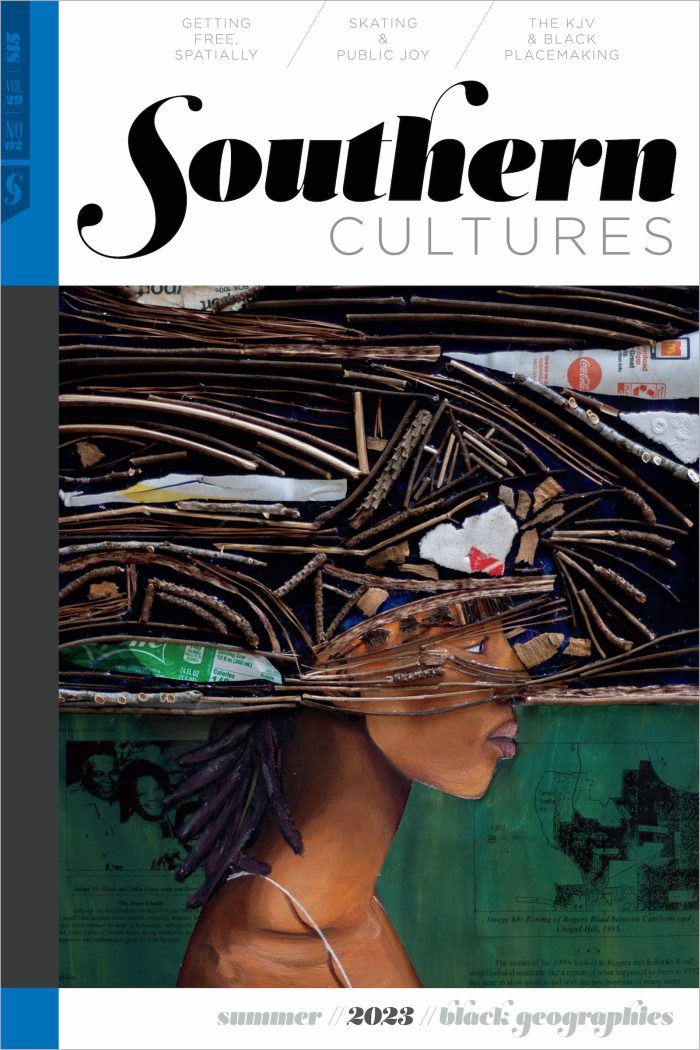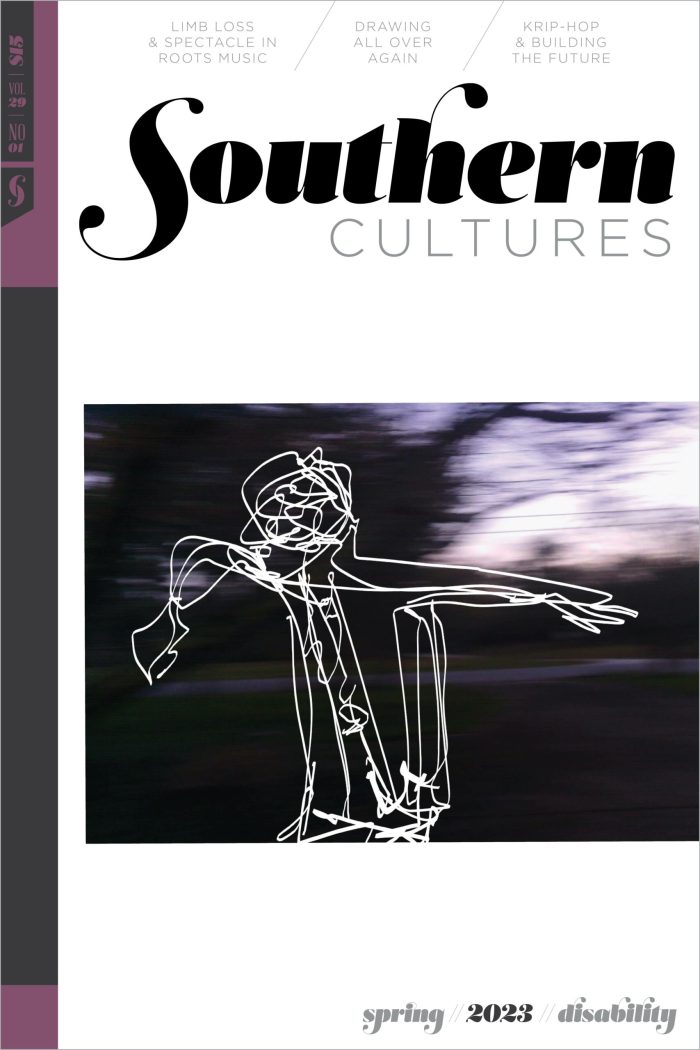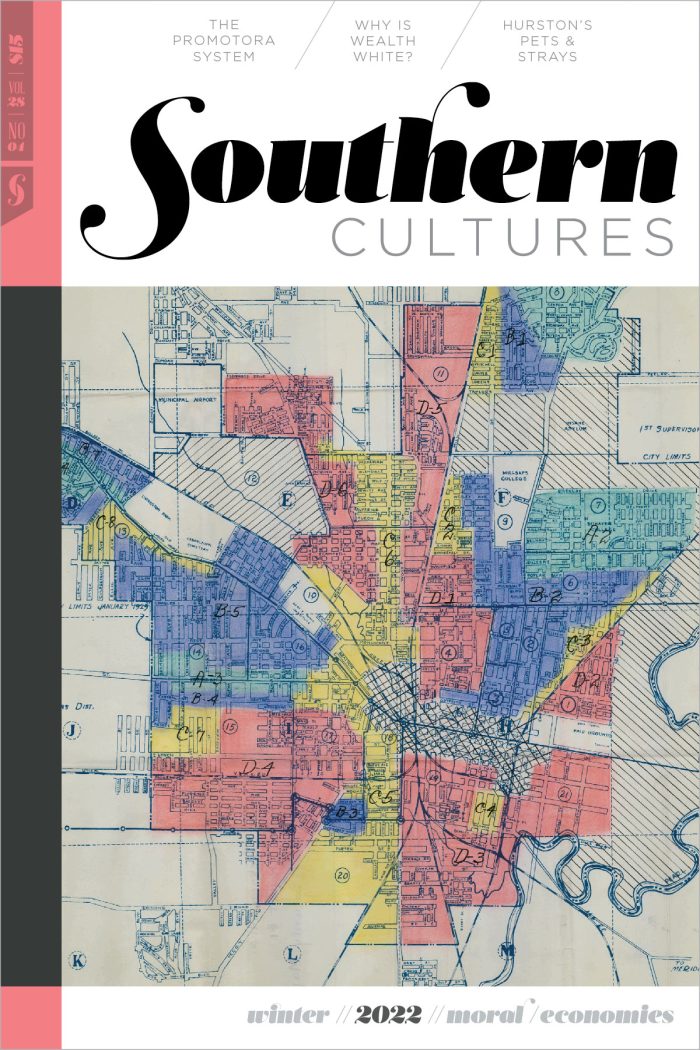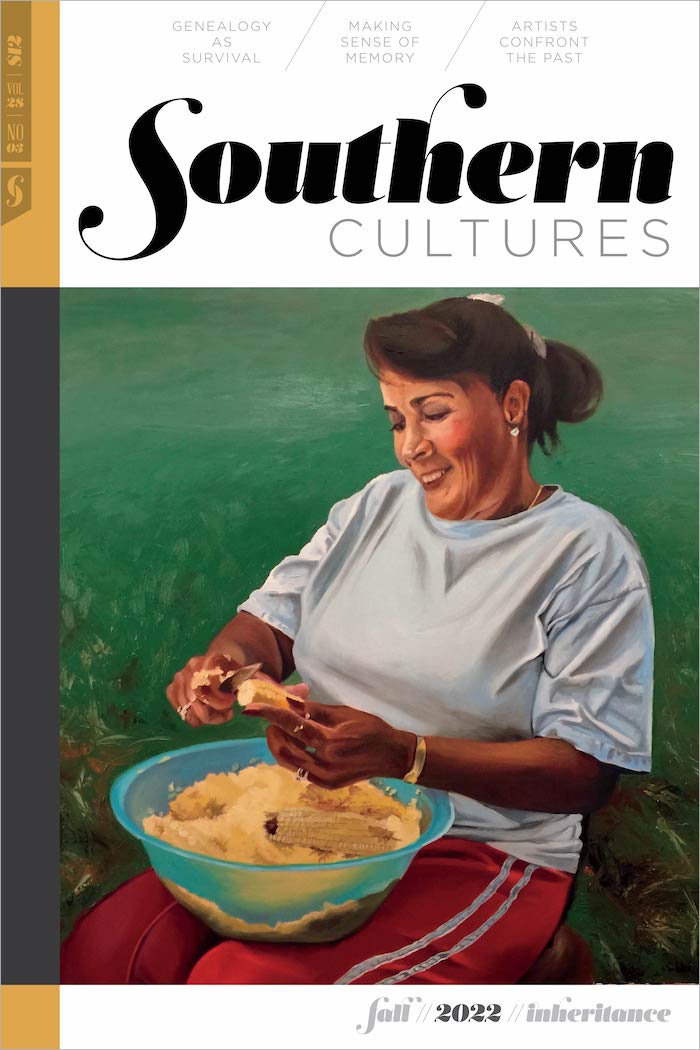BUY ACCESS
by Jewell Knotts,
J. Wayne Flynt
“Joseph Crespino’s interpretation of To Kill a Mockingbird must be politically motivated, because it certainly is not based on the text.” It’s been some time since an essay has provoked as much debate around here as Joseph Crespino’s “The Strange Career of Atticus Finch” [from the Summer 2000 issue of Southern Cultures]. In his essay »
BUY ACCESS
by Harry L. Watson
“This old mule has a lot of kick left.” When I was a child, back in the 1950s, mules were still a receding presence on the southern landscape. On visits to country kinfolk, they stood in idle, flop-eared mourning around nearly abandoned barnyards–dark brown mules with bulbous white noses, white mules, even yellow ones. Like »
BUY ACCESS
by Jerry Leath Mills
“Uncle Jimbo ‘once won a twenty-dollar bet by eating a bologna sandwich while sitting on a dead mule.'” Among many interesting things in Rick Bragg’s All Over but the Shoutin’ (1998) is the revelation that Bragg’s Uncle Jimbo “once won a twenty-dollar bet by eating a bologna sandwich while sitting on a dead mule” (xviii). »
BUY ACCESS
by Melton Alonza McLaurin
“On November 10, 1898, an armed mob of whites destroyed the state’s only daily African American newspaper by burning the building in which is was housed.” Scholars do not dispute the essential facts about the racial violence that occurred in Wilmington, North Carolina, more than a hundred years ago, although interpretations of the event by »
BUY ACCESS
by Philip F. Gura
“Mike Seeger, a conscientious objector during the Korean War, was fulfilling his alternative national service as a dishwasher in a tuberculosis hospital.” In the early spring of 1999 I drove out of Lexington, Virginia, and halfway up a mountain turned onto the private drive that led to Mike Seeger’s home. Soon enough John Cohen arrived »
BUY ACCESS
by Peter A. Coclanis
“Plantations dominated the southern economy by the 1770s, and those who controlled them had decisively shaped the region’s economic course, and, perhaps, destiny.” Questions relating to the distinctiveness of the American North and South have intrigued historians and the public for generations. In fact, these questions and broader related controversies have proven among the most »
BUY ACCESS
by Linda Flowers
But they’re not as common as they used to be, these old farmers in faded overalls, in khaki shirts washed thin and almost white, brogans, hats usually: dusty as a March field. You don’t see them much anymore. Not in Rocky Mount and Goldsboro, Wilson, Smithfield and Clinton; in Faison, yes, in little towns like »
BUY ACCESS
by John Michael Vlach
The Johns Hopkins University Press, 1999 Although it is commonplace for a recently minted Ph.D. to publish his or her dissertation soon after its completion, making of it the foundation for a scholarly reputation, cultural geographer John B. Rehder took a different approach. Delta Sugar: Louisiana’s Vanishing Plantation Landscape is his dissertation revisited some thirty »
BUY ACCESS
by William L. Barney
University Press of Virginia, 1999 Like a new shoe of the correct size that initially seems to fit awkwardly because of its unusual design, Stephen Cushman’s Bloody Promenade requires patience on the part of the reader before its virtues become apparent. What at first seems to be a series of rambling, disjointed musings soon builds »
BUY ACCESS
by Frank G. Queen
Louisiana State University Press, 1999 A new method of distributing goods and services is constructed in a startlingly short period of time. Isolated communities are suddenly connected to each other and the outside world by a universal, common carrier. The builder becomes rich, powerful, admired, and hated. Its monopoly brings government lawsuits, and politicians call »
BUY ACCESS
by Fred C. Hobson
University of North Carolina Press, 2000 The photograph on the front of Lost Revolutions captures what Pete Daniel’s book is about as well as any single image can. In Ellis Auditorium in Memphis in 1955, twenty-year-old Elvis Presley, one year removed from obscurity, stands with his arm around bluesman B. B. King. Race and class »
BUY ACCESS
by Gavin James Campbell
Columbia Legacy, 2000; Rounder, 2000; Rounder, 2000; Arhoolie, 2000 To honor the one hundredth anniversary of Louis Armstrong’s birth, Columbia’s Legacy division is launching a number of projects. The first of these is a delightful collection of Armstrong’s love songs. Six of the fifteen tracks cover the period from 1929 and 1930 when he worked »
BUY ACCESS
by Mark Royden Winchell
“‘This old boy wanted to kill me a while back because I married his daughter, but we’re friends again now.'” I first saw Jerry Lee Lewis in the Vanderbilt University football stadium on Labor Day 1973. The opening act that night was Kinky Friedman and the Texas Jewboys. Although political incorrectness was not yet in »
Poetry
BUY ACCESS
by Forrest Hamer
I sorely do love her, I thought said.Actually, he said he loved her surely,but Southerners mix words up sometimesand I have often taken them at face value. So as this Southern man was talking aboutthe Southern woman he would marry, it seemed to me grownups tangled their feelingsunnecessarily, and especially love. And,since we were in »
